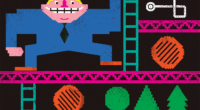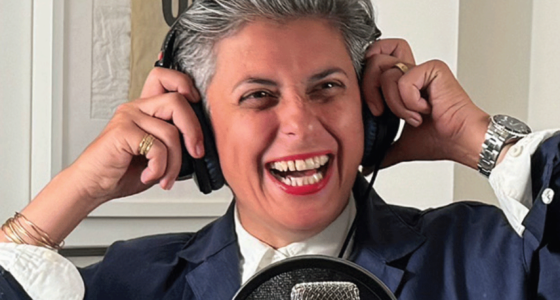How Lela Savic, founding editor of La Converse, reinvented francophone journalism

Photo by Pablo Ortiz
When Lela Savic began working as a journalist in Canadian legacy media, she quickly realized her voice was being stifled. Speaking truth to power became increasingly difficult when colleagues read her thoughts and opinions as social or political activism. Hyperaware of what she said and how she presented herself in predominantly white newsrooms, she felt herself losing touch with her community and her authentic self. She says, “Somebody once told me, ‘Lela, I feel like you’re fire that’s trying to fit into a box.’”
Burned out and tired of trying to contain herself, Savic took matters into her own hands. In 2020, she applied for a $5,000 grant to start a four-week media pop-up project to serve marginalized communities in Quebec. The project—La Converse—soon turned into a full-time job. A news outlet that focused on community-powered journalism and featured underrepresented voices had not previously existed in Quebec, and it quickly gained popularity. Savic says her career took a different path “the moment I stopped looking for the approval of white men.”
Before Savic changed the landscape of francophone media in Canada, she didn’t always believe it was possible for her to become a journalist. Granted, growing up she frequently watched 20/20, admiring the late Barbara Walters’s poise and graceful interviews (today she recognizes her flaws). Despite this interest in journalism, she didn’t apply to journalism school until she was in her late twenties. When she was younger, she didn’t see journalism as being a possible career for her. Savic is Roma, and from a young age, the stereotypical and harmful media representations of Roma people affected how she envisioned her future. “Every time I watch a movie about Roma, I prepare myself to be harmed,” she says.
When Savic was five, her family moved to Montreal from Serbia (at the time, it was Yugoslavia). Much of her extended family would soon follow them to Canada during the Kosovo War. At one point, Savic had 10 people living with her. “It didn’t really feel like I grew up in Montreal,” she says. “We were still very much connected to our ways of life.” Even today, she chooses to speak Romani with her daughter to preserve the language. “It’s really my mother tongue.” Holding onto community and staying connected to her Romani roots is a cornerstone of Savic’s identity.
This relationship to her culture has informed Savic’s approach to journalism. “As a Roma person,” she says, “to be a journalist is very political.” After years of watching inaccurate and racist portrayals of Roma people in the media, Savic is taking control of the narrative. “I remember the first day I walked into a newsroom, I was like, ‘Wow, I’m no longer the subject of your articles. I’m now somebody who has the power to decide what I put in the articles.’” But Savic’s aspirations as an editor go beyond her personal goals—it’s about making people from misrepresented or underrepresented communities feel heard. “The goal,” she says, “is to create a new generation of journalists where people can be unapologetically themselves.”
About the author
Rachel DeGasperis is a second-year Master of Journalism student at Toronto Metropolitan University. She has worked as an associate producer at CBC’s Cross Country Checkup, and helps produce On the Frontlines of Democracy, an upcoming TMU podcast. She is also the co-editor of The Otter and the research assistant for TMU’s Journalism Research Centre. Previously, she has interned at The Big Story. She loves anything and everything produced by Alice Munro, Nina Simone, and Mary Pratt.







